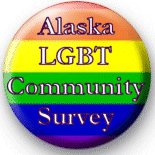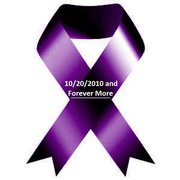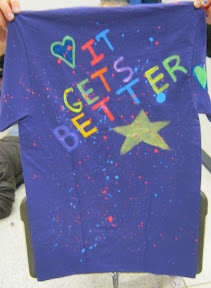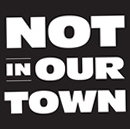Articles in Resources
Time Travel with Four A’s at 25

 You are cordially invited to join Four A’s in celebrating our 25th anniversary. Experience 25 years in one night during a most triumphant fundraiser. Reserve your seat in our time machine and experience live time travel. The evening will be a most excellent adventure showcasing our history and the history of HIV/AIDS in Alaska. You won’t believe where we visit and who visits us!
You are cordially invited to join Four A’s in celebrating our 25th anniversary. Experience 25 years in one night during a most triumphant fundraiser. Reserve your seat in our time machine and experience live time travel. The evening will be a most excellent adventure showcasing our history and the history of HIV/AIDS in Alaska. You won’t believe where we visit and who visits us!
Four A’s 25th Anniversary
Saturday, February 26, 7-9:30 pm
Crosspoint Community Church, in Anchorage
Tickets $50 each. Call (263-2050) to reserve your tickets, or buy on online at Four A’s.
Alaska’s Barnes & Noble stores join national No Name-Calling project
“Bringing awareness to the seriousness and severity of name-calling, teasing, bullying and cyber bullying is very important to Barnes & Noble. We’re pleased to be partnering with Simon & Schuster and GLSEN for such an important effort,” said Mary Amicucci, vice president of Children’s Books for Barnes & Noble.“GLSEN is excited to work with Barnes & Noble to bring No Name-Calling Week’s message of respect to youth across the country throughout the month of January,” said Gay, Lesbian and Straight Education Network (GLSEN) Executive Director Eliza Byard. “As the world’s largest bookseller, we applaud Barnes & Noble for embracing this opportunity to raise awareness about the problems of name-calling and bullying.”
Barnes & Noble stores across the country have events planned throughout January to recognize No Name-Calling Month including: All stores will host a national Storytime event on Saturday, January 15 at 11 a.m. The event will include a Storytime reading of the books Chrysanthemum by Kevin Henkes and One by Kathryn Otoshi, arts and crafts and other activities.From January 15 through January 23, stores will host Barnes & Noble Educator Appreciation Week. Stores will have No Name-Calling materials available for teachers and educators including book recommendations, tip sheets for organizing No Name-Calling events, lesson plans for elementary and middle school students, classroom posters and buttons, [and] in-store panel discussions with GLSEN local chapters. Exclusive No Name-Calling articles by James Howe and Jodi Picoult will be featured in the January line-up of the More In Store program available on NOOK, the Barnes & Noble eBook Reader.Barnes & Noble.com will feature a No Name-Calling page. Exclusive video content from bestselling children’s, teen and adult authors will be placed on the site during the month of January… The authors will discuss their thoughts on and experiences with bullying.
The Creative Expression Contest is an opportunity for students to submit essays, poetry, music, original artwork, or other pieces that convey their experiences and feelings about name-calling, and their ideas for putting a stop to verbal bullying in their schools and communities. This year, we have added a new High School category to the contest for short-film submissions that focus on anti-LGBT name-calling and bullying in school. The goal is to have students working on their art pieces during the week as a way to learn about and deal with name-calling and bullying.
Christian Gay & Trans Resources

The Christmas season is a good time to highlight resources for LGBT Christians and people with Christian friends and family members. The Gay Christian Network, SoulForce and the Parents Reconciling Network are a few of the online resources that were recently recommended by Alaskans.
“I wish that you guys could post a link to The Gay Christian Network. [They have] amazing YouTube videos on helping people who are gay come to terms with their spirituality,” wrote Mark Allred of Alaska Native Lutheran Church in Anchorage.
Mark encourages watching all 7 videos, but he thinks the one embedded below is the most useful. Watch Gay Christian Answers, episode 4: “Aren’t we designed for heterosexuality?”
MCC Anchorage
Matthew Moak at Metropolitan Community Church (MCC) of Anchorage also recommends The Gay Christian Network, along with several other resources. Of course, MCC itself is a great resource.
- What the Bible Says – and Doesn’t Say – about Homosexuality (pdf) is an important resource from SoulForce, a group that “works to end the religious and political oppression of lesbian, gay, bisexual, transgender, queer, and questioning people.”
- Homosexuality And The Bible is a list of articles and websites by Christian Gays, a group that provides “the resources for any who wish to understand the ACCURATE interpretation of the Original Scriptures with regard to homosexuality.”
- SisterFriends Together “is an outreach ministry of Grace Unfolding Ministries, and we exist to provide a safe and welcoming online faith community for lesbian, bisexual, questioning and transgender women.” They can also be found at ChristianLesbians, their previous name.
- The Gay Christian Network is “a nonprofit ministry serving Christians who happen to be lesbian, gay, bisexual, or transgender, and those who care about them.”
- Coming Out as a Transgender Person is a workbook created by MCC Transgender Ministries, which “provides opportunities for spiritual development for transgender people and their families and friends.”
PRN is an organization of United Methodist parents of GLBT children. Rev. Johnathan of Church Life Alaska mentioned a new transgender resource from PRN in last week’s Alaska GLBT News. The information came from Sara Boesser, who compiles the weekly LGBT News Roundup posted here on Bent Alaska.
New Resource: Our Transgender And Intersex Children
What causes a person’s sexual orientation is unknown. Causes for people being transgender or intersex are not fully understood. A huge variety of factors are at work in making each individual the person that they are and there is no one reason that causes people to be transgender. It has nothing to do with anything you did or did not do, nor anything your child did or did not do.
Families love their children and want what is best for them. You cannot change your child. However, you can change your response to your child. Your specific response can improve your child’s health and happiness. Your consistent parenting and unconditional love does have a central and enduring influence on your child’s life. Here are some parenting guidelines, shown by research, to improve the physical and mental health of LGBT children.
LGBT-friendly church groups
Most denominations have an LGBT or LGBT-friendly wing, and many of these movements have web sites with resource pages. A good list of national LGBT-friendly church groups can be found HERE. This does not imply that the local Alaska congregations are LGBT-friendly, unfortunately, but the online resources can be useful.
The Resource page on the Open and Affirming (ONA) site of the United Church of Christ (UCC) was suggested by a reader named Matt. He belonged to an ONA church before moving to Alaska, although he is not involved with the UCC in Alaska. None of the Alaska UCC’s are listed as Open and Affirming on the Coalition’s site, and I don’t know if the local congregations are LGBT-friendly or not. But the national ONA site includes resources for gay and trans Christians.
A list of Alaska’s LGBT-friendly churches and religious groups is posted HERE.
Do you know a good online LGBT-positive Christian resource that we didn’t mention? Please leave the name and link in a comment below this list.
Anchorage Discrimination Survey to be distributed in early 2011

 by Shelby Carpenter / Crossposted at Alaska LGBT Community Survey
by Shelby Carpenter / Crossposted at Alaska LGBT Community Survey
During the 2009 battle over Anchorage Ordinance 64 — which would have added sexual orientation and gender identity to the Municipality of Anchorage’s equal rights code — one thing we heard from the opposition again and again was that there was no “proof” that discrimination was a problem that needed to be addressed. So this fall, a group of concerned community members and organizations came together to brainstorm how to compile this kind of information about the LGBT community in Alaska—both so that we can provide policymakers with accurate information, and so that we ourselves more fully understand the needs of our community. Thus, the Alaska LGBT Community Survey Task Force was born.
 The Task Force will complete two important surveys over the coming years. Our broader, more long-term project is the Alaska LGBT Community Statewide Survey, which will provide an extensive profile of the LGBT community all across the state. Over the next six months, however, our focus is the Anchorage Discrimination Survey, which will focus exclusively on experiences of bias and discrimination by LGBT people in Anchorage. Please look for the survey in early 2011! We need as many respondents as possible, and all answers will be completely confidential. You can find more information about the survey at alaskacommunity.org.
The Task Force will complete two important surveys over the coming years. Our broader, more long-term project is the Alaska LGBT Community Statewide Survey, which will provide an extensive profile of the LGBT community all across the state. Over the next six months, however, our focus is the Anchorage Discrimination Survey, which will focus exclusively on experiences of bias and discrimination by LGBT people in Anchorage. Please look for the survey in early 2011! We need as many respondents as possible, and all answers will be completely confidential. You can find more information about the survey at alaskacommunity.org.
I will be serving as Project Manager for the survey, so please also feel free to reach out to me by phone at (907) 263-2006 or by email at scarpenter@akclu.org about any questions you may have.
Shelby Carpenter is the LGBT Public Policy Director for the American Civil Liberties Union of Alaska, and is Project Manager of the Alaska LGBT Community Survey Task Force.
Not In Our Town: Juneau
The members of the Juneau Human Rights Commission have been working this past year on developing a Juneau Human Rights coalition of organizations and individuals here in Juneau. Juneau has many people of different ethnic origins and nationalities whom, in the past, have been victims of discrimination. Nationally, there has been an increase in groups promoting hate crimes towards racial minorities, gays and lesbians, and those of different religions and ethnic backgrounds. Bullying in schools has continued to plague communities around the country. To counter these concerns and to develop opportunity for dialogue among our citizens, the Juneau Human Rights Commission proposes to develop a local Human Rights Coalition.
The impetus for this has come from the efforts of the people in Billings, Montana, to confront hate crimes in the late 1980’s and early 1990’s. When violence against racial, ethnic and religious minorities exploded in Billings, the people of that city, through various groups and as individuals, drew together to demonstrate their belief in the pluralistic values that have been the bedrock of our nation. They dubbed their efforts, “Not In Our Town”. Since then, “Not In Our Town” has become a national movement emulated in communities and cities across the country.The Commission members here in Juneau want to foster that movement here in Juneau for many reasons. We want to foster a high level of understanding, support and acceptance of all members of our community. We want there to be a forum where issues can be discussed. We want to support the school district in its efforts at reducing bullying in the schools.To better understand the nature of such a coalition and how it functions, we have invited Eran Thompson to speak at the Egan Library on the evening of November 3. Eran is from Billings, and while he wasn’t there during the initial period of the early 1990’s, Eran is current president of their “Not in Our Town” coalition. He will speak on the formation of the coalition, what it does, who belongs, how it relates to the community, and how it provides a forum for issues that Billings confronts.
Obama: It Gets Better. Dan Savage: Thanks, now Make It Better

Over 10 million people viewed the It Gets Better project started by columnist Dan Savage, millions participated in Spirit Day events wearing purple to raise awareness of anti-gay bullying, and thousands attended vigils for the gay teens who killed themselves recently. Yet the suicides continue, with another gay teen taking his life this week.
Secretary of State Hillary Clinton uploaded an It Gets Better message on Tuesday, and President Obama followed with his message on Thursday. They are strong messages against prejudice and in support of LGBT youth.
Clinton’s video was appreciated as the highest level government official to join the project at the time, while Obama’s message sparked anger in the LGBT community because the good words are contradicted by his lack of action on behalf of gay rights.
Watch President Obama’s It Gets Better video:
The It Gets Better project is about kids, anti-gay bullying and suicide prevention. This is the first time a sitting president has told gay youth that there is nothing wrong with them. He is a good speaker and his message can reach many people, including those who might not have heard this kind of message before and those who have been told otherwise. A speech like this from the president has the ability to save lives, and that’s what the It Gets Better project is all about.
Now it’s time to follow those words with deeds that actually make it better for LGBT youth and adults.
On Friday, Dan Savage responded to President Obama’s video, voicing the mixed feelings expressed by the LGBT community:
Thanks to Dan Savage and his husband for creating a project that brings national attention to the problem of anti-LGBT discrimination and the harm it causes our youth and our society.
Solidarity in Spirit and Action

A guest post about Spirit Day by Lauren, president of the Gay-Straight Alliance at the University of Alaska, Fairbanks

Today we wore purple to celebrate and rejoice in unity for each other within the LGBT community, coming together in support of one another. The simple act of incorporating the color in our wardrobe today was a powerful action that showed our friends, neighbors, family and strangers that there are people who care about you, about me, about everyone. We asked our friends and family to wear a color to show their love and they did, and to everyone who wore purple today, to show your support, we thank you.
I don’t know if you heard, but just hours before Spirit Day commenced, another young man couldn’t bear his pain and took his own life on campus at Oakland University in Michigan. Though the police reported that bullying was not an evident factor in 19-year-old Corey Jackson’s death, we all know that there are many kinds of pain that drive us to the edge and, oftentimes, over it. I wept when I read the article; my heart hurt as I read and I just couldn’t believe that just before our day of pulling together as an allied community, that one man was unable to hold on just one more day. I think the response of Melissa Pope, the director of the university’s Gender and Sexuality Center, sums up a lot of what people are feeling today and recently in response to the rash of suicides that have ravaged our nation and communities the past two months:
We must look beyond the term “bullying” to the overall treatment of the Lesbian, Gay, Bisexual and Transgender (LGBT) community to begin to grasp the long-standing epidemic of suicide among our LGBT youth.
While the national press has picked up this issue over the last two months, we have been losing high numbers of LGBT youth to suicide for decades. In recent years, we’ve labeled the cause as bullying. But the root cause goes deeper – it goes to the very core of our society that discriminates against the LGBT community on all levels, including the denial of basic human rights that are supposed to belong to every person.
As I sit with the students who regularly visit the Oakland University Gender and Sexuality Center, including the newer members of our community, drawn to the Center for affirmation and support, I am confident that these individuals know they are loved and accepted for who they are. My greater concern is the hundreds of students, faculty and staff who do not come to the Center. Those who are afraid to come out – perhaps even to themselves – for fear of the persecution they will suffer. My greatest hope is that those who feel isolated reach out to resources like the GSC to discover they are not alone. We are here to listen and offer support.
I, too, hope that people out there can find somewhere they feel safe enough to share their burdens. As I write this, I’m listening to SuperChick’s “We Live” on repeat because of these words that make up the chorus: “We live, we love, we forgive and never give up / Cuz the days we are given are gifts from above / And today we remember to live and to love”. That entire song is about learning to live when you know life is hell, when there isn’t much you can do. Each day, we just need to remember to live and love. To not give up, to keep moving forward, because it gets better. It really does, I promise. I wouldn’t be here, writing this to you all, if it didn’t.
There are safe spaces on campus if you feel overwhelmed by anything in your life, related to sexuality or not, and it doesn’t matter if you are an LGBT student or not. Here at UAF, you can go to any of our GSA advisors for advice (hence the title ‘advisor’) or anything that you need. You can go to the Student Health and Counseling Center. Talk to a friend, an RA, your Dorm Director, peer mentor, friendly person on your floor. Call your parents, if you feel comfortable, or call someone you can trust. The GSA meets every Wednesday at 4:30pm at the Library, room 502. Anyone and everyone is welcome to come to share their stories–because all stories deserve to be listened to. Even the people in the Office of Multicultural Affairs and Diversity office (OMAD) are cool enough to listen with respect if you come to them. You can apply these suggestions on different campuses as well–get in touch with your diversity/LGBT clubs, your Women’s Center, Men’s Center, health center, and faculty that help advise these groups and services.
Outside of campus, there are many places you can go if you are being harassed or bullied in any way. If it’s bad enough, let the police know (do this if you are on campus as well). Treat harassment, even if it’s ‘not important’ or ‘not violent’ in the form of verbal abuse, as a potential attack and tell people. Tell anyone who will listen. Sympathetic ears really work wonders for hurting hearts, and they generally come with shoulders you can cry on. Your friends are friends for a reason: they know you, support you, and love you. If they don’t do these things, they’re not good friends (and you should think about making new ones). Let them help you out of a bad situation. Is it a loved one who is targeting you? Find someone to help mediate some sort of conflict resolution meeting AFTER extracting yourself from the situation. If your faith is kosher with the way you love (like many are growing to be nowadays), find someone who can guide you on that front as well.
No one deserves to be hurt for who they love. The way I see harassment is that it is like a cancer–you can often not tell that it’s there. It might be subtle as a butterfly’s kiss or like a freight train barreling down the tracks, but it is there. Early treatment of the situation will generally help resolve the issues, but sometimes you need other outside help. Build your support network up and get help dealing with things if you are confronted with harassment, abuse, and/or bullying. Violence, verbal abuse, bigotry, pick the poison: none of it is all right or acceptable, and if you find yourself in a situation where you are dealing with these issues, get help. Now.
In the end, wearing purple alone does not help us get over the fact that bigotry leads to abuse in its myriad of forms. What it does is identify those who are capable of supporting us while we deal with said abuse. No one should have to live or stay in a place or situation that does not support them–no one. Domestic or not, violence in any form is not something that should be a part of our social community. Whether you are gay or not, if you are confronted with harassment, you are able to take charge of the situation. You are not a victim, you are someone who has the power to change what is going on to you. People can only hurt you if you let them, right? Don’t ever let them. Get help. A lesson I had to learn the hard way is that asking for assistance is not a sign of weakness, but rather a form of power.
Be powerful, my friends.
APU to Anchorage: Stop the Bullying!


APU to Anchorage: Stop the Bullying!On Wednesday, October 20, APU students, staff and faculty will be wearing purple in support of an anti-bullying movement which started on Facebook.After a series of what was five suicides by gay youth across the country, Facebook users rallied together to form a variety of groups to commemorate the lives of these youth and send a message to the nation – No more bullying, no more harassment and no more discrimination.This movement slowly picked up steam and drew the attention of hundreds of thousands of Facebook users.At Alaska Pacific University, we remember those who have taken their lives and, with one voice, remind Anchorage that the lives of all youth are valued.The student government of APU, the Associated Students of APU, and Spectrum, the diversity club on campus, are co-sponsoring this event at the university.Dr. Don Bantz, the new president of APU, gave permission last Friday to drape the log in purple and decorate the school grounds in purple flags and triangles.We hope to raise awareness and understanding by unifying the many different voices at APU.
Transgender health care workshop in Anchorage, Wed. Oct 20

Transgender People and Access to Care: Demystifying Gender Identity in the classroom, in the clinic and in the community
As the visibility and activism of transgender and gender-variant people has grown, providers are seeking ways to increase their understanding of the diversity of transgender experiences. This workshop will provide basic information and present strategies, standards of care, best practices, and resources for incorporating appropriate and effective support to your transgender clients. Our presenter is a member of the transgender community as well as a seasoned trainer who has presented on transgender awareness and health topics nationally for the past 12 years.Learning ObjectivesAt the end of our workshop, participants will:
- Understand basic terminology, language and concepts of gender variant experiences including gender transition process and the role of mental health and social service providers.
- Distinguish between biological sex, gender identity and sexual orientation and ways in which care for transgender populations specifically differs from care for gay, lesbian, and bisexual communities.
- Identify current standards of care and approaches to supporting transgender clients and members of the client’s support system.
- Be able to incorporate a basic knowledge of gender identity into their current professional work, including resources for supervision and educational materials.
The TrainerSamuel Lurie is the director of Transgender Training and Advocacy (www.tgtrain.org) and is recognized nationally as an expert on transgender issues and access to health care and prevention services. He has been active in community health for over 20 years, focusing on HIV/AIDS activism, harm reduction and empowerment in marginalized communities. Samuel has an interactive, engaging and thought-provoking training style, and has presented on transgender issues to over 26,000 providers in 28 states. He lives in Vermont, where he recently opened a private practice in mind-body health.
- Nearly 1 in 5 (19 percent) reported being refused care outright because they were transgender or gender non-conforming.
- Survey participants reported very high levels of postponing medical care when sick or injured due to discrimination and disrespect (28 percent).
- Harassment: 28 percent of respondents were subjected to harassment in medical settings.
- Significant lack of provider knowledge: 50 percent of the sample reported having to teach their medical providers about transgender care.
- Despite barriers, the majority has accessed some form of transition-related medical care, but only a minority has had any surgery, despite the fact that a strong majority stated wanting to have it someday.
- Respondents reported more than four times the national average of HIV infection, 2.64 percent in our sample compared to 0.6 percent in the general population, with rates for transgender women at 3.76 percent, and with those who are unemployed (4.67 percent) or who have engaged in sex work (15.32 percent) even higher.
- Over a quarter of the respondents reported misusing drugs or alcohol specifically to cope with the discrimination they faced due to their gender identity or expression.
- A staggering 41 percent of respondents reported attempting suicide compared to 1.6 percent of the general population.
Statistics related to suicide, and the relationship to bullying and harassment in school, were released last week, and are available HERE.
City Councilman Joel Burns: It Gets Better























